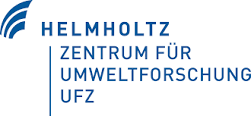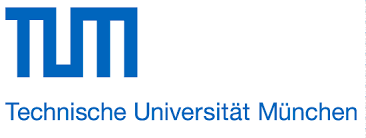DBG-Workshop: Combined analysis of biochemistry and structural complexity of soil via imaging
July 4th-7th 2016 in Halle (Saale)



Scope
Important soil functions like organic matter turnover, water retention and production of biomass depend on complex interactions between physico-chemical soil properties and soil biota. The intricate pore architecture in a size range of sub-µm to cm, exerts an important control on these interactions as it provides the living space for soil biota, the pathways for organic matter fluxes and heterogeneous patterns of reaction sites. The combined investigation of physical, chemical and biological aspects of soil heterogeneity in undisturbed soil poses a major challenge in soil research for the years to come. Numerous 2D and 3D imaging techniques exist today, which all capture selective information about a sample and which all work on different spatial scales.
Objectives
This workshop pursues two main objectives:
1. We want to give an overview of the current progress and research needs with respect to the combined analysis of biochemistry and structural complexity of soil via imaging. Keynote lectures will share their experience about how new imaging techniques have helped to improve our understanding about processes in soil and how they might be used in the near future.
2. We provide an introductory course with lectures and exercises to methodological aspects of image processing. The case studies cover a broad range from X-ray CT images of soil structure, to element maps obtained from NanoSIMS and fluorescence microscopy images of microbes. The participants of the workshop are encouraged to present their own work in a poster session with room for intensive discussion.
Target group
This course will be held for the first time as a cooperation between commissions I, II and III of the DBG. It is targeted at young scientists (PhD, Postdoc level) that are interested in applying imaging and image processing in their field of research. Please register at the link below with a short motivation letter including your field of research and a CV. If the number of applications exceeds 25, participants will be selected with respect to scientific background.
Organization
The course is organized by Steffen Schlüter (UFZ), Carsten W. Müller (TU München) and Thilo Eickhorst (Uni Bremen). Philippe Baveye (Rensselaer Polytechnic Institute) and other speakers will give keynote lectures. The exercises will be done with ImageJ, a free software platform popular in life sciences. The number of participants is limited to 25, in order to guarantee good support during the exercises and intensive discussions throughout the workshop. The registration expected fee is 150€, which covers:
Course materials
Lunch
Coffee breaks
Icebreaker
Participation at the workshop dinner (without drinks)
Registration
Deadline for registration is May 31th 2016. Please submit your registration with the following form:
Organization
The workshop is organized by Steffen Schlüter (Helmholtz-Zentrum für Umweltforschung – UFZ), Carsten W. Müller (Technische Universität München) and Thilo Eickhorst (Universität Bremen). The registration fee is 150€. The workshop will take place on July 4-7th 2016 at the UFZ in Halle. The number of participants is limited to 25 in order to guarantee good support during the exercises and an intimate atmosphere for discussion. The exercises will be carried out with ImageJ, a free software platform that is very popular in life sciences.
Location
This year the summer school will take place at the Helmholtz Centre for Environmental Research - UFZ in Halle(Saale). We recommend the participants to organize accomodations independently:
- Hostel Nr. 5 (from 15€)
- Jugendherberge Halle (from 22.50€)
- Dormotel Europa (from 43€)
- Am Steintor (from 49€)
